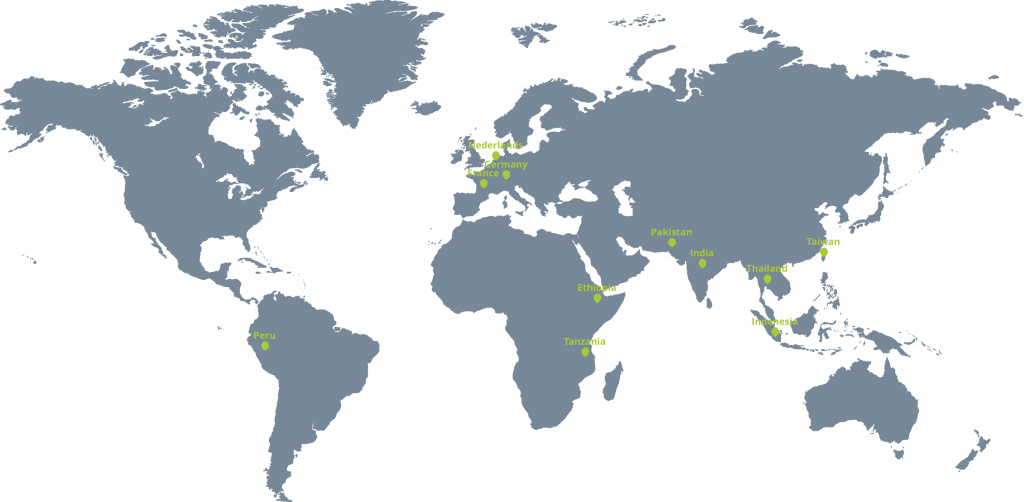Plant Breeders without Borders, with help from Bayer, shares knowledge and plant breeding skills in developing countries via experienced plant breeders, agricultural students, and partners. They also empower smallholder farmers by encouraging the cultivation of underutilized crops with highly nutritional components and greater resilience to the effects of climate change.
They strategically target activities in over twenty countries, aiming to reach over 5,000 trained farmers through capacity building activities. They plan to create new varieties that improve yields and soil fertility and are more resilient to variable climates.
For example, they have joined forces with Bogor University in Indonesia to empower 30 farmers and agricultural students to develop their own varieties of Bambara Groundnut and other Indonesian indigenous vegetables. Practical training in plant crossing to develop varieties will be the focus, as well as how to successfully market the products to make a sustainable living. The aim is to reduce poverty and improve food security under climate change.
Plant Breeders Without Borders also works in Ethiopia with the International Livestock Research Institute to train farmers and research staff to breed their own varieties of temperate forages. Temperate forages are an underutilized crop in Ethiopia, so farmers struggle to get seed to grow them. This training also encourages farmers to start their own businesses in producing forage seeds and hopefully develop their own varieties in the future.

Anthony Leddin sharing plant breeding knowledge in Ethiopia
In 2019, a Plant Breeders Without Borders workshop was held in Nepal. The underutilized crops of interest were finger millet (Eleusine coracana), foxtail millet (Setaria italica), sweet buckwheat (Fagopyrum esculentum) and tartary buckwheat (Fagopyrum tataricum). 40 people attended the training including smallholder farmers, students and researchers. Training included the methods in crossing these species and there is great interest to extend this project into a breeding program.
The projects undertaken to date involved knowledge sharing and capacity building around creation of a breeding program selecting for desirable locally adapted characteristics. Together with the local partner the farmers will take ownership of these breeding programs and potentially develop and market their improved crop varieties to their chosen markets. All germplasm developed in the projects will be made freely available through germplasm resource centers so other smallholder farmer projects can also use them directly or eventually create new varieties for their environment.
Developing countries: Indonesia, Ethiopia, Nepal
Contact: http://pbwob.org/; aleddin@valleyseeds.com
Brochure: http://pbwob.org/brochurePBWOB.pdf
Testimonial
Give a person vegetable seeds, feed them for a year. Give them fruit trees, feed them for many years. Give them the knowledge to breed plants and feed them for a lifetime.
Anthony Leddin
